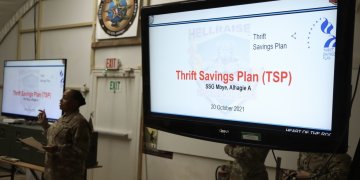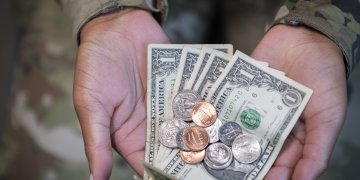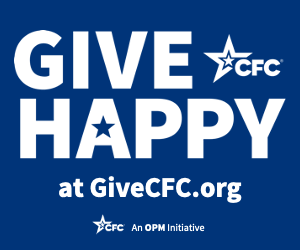As inflation engulfs the U.S. on the heels of a global pandemic, military families are struggling, according to the chief operating officer of a financial nonprofit that advises military families and veterans.
Army Reserve Col. Jerry Quinn, of the American Armed Forces Mutual Aid Association, said inflation has to be adding pressure, “especially just gasoline and food.”
“Sometimes for some military families, those were already things that were hard to do. And now they’re harder,” he said.
According to First Command Financial Services, an institution that helps military families establish financial security, 47% of military spouses reported a loss of employment or income due to COVID-19, and 64% of military families indicated they were adversely impacted by the pandemic.
How to maintain sound financial health
Start with a budget. It can make the purchase of a new car or funding a family vacation easier or more doable, even buying weekly groceries. And it can help facilitate the allocation of money to retirement savings.
“The military family needs to remember to live within their means,” said Quinn. “I want to stress to your audience that budgeting does have a place in everyone’s life, even if you’re at the beginning of your financial journey or if you’re a seasoned financial professional … But the point is, budgeting has to be a component of the family’s finances.”
The small things count
First Command recommends reducing consumable expenses, such as cigarettes and alcohol, or frequent stops for coffee and convenience store snacks and beverages. They suggest bringing coffee and snacks from home. But what’s most important, according to First Command, is determining if these items add value to one’s life. If so, place them in the budget.
“So if you’ve done the budgeting … and you’ve decided to cut some things out, Starbucks every day doesn’t make a lot of sense,” Quinn said. “Opting for eating out one night a week instead of three nights a week.”
First Command also recommends taking advantage of military discounts, whether online shopping or at retail establishments, and using cash during weekends because it’s easy to spend non-budgeted money with debit and credit cards. They propose withdrawing a specific amount for the weekend to help stay on budget.
What to do with the extra funds
First Command and AAFMAA implore military families to set up emergency funds savings and contribute to it regularly.
“Even in acute inflation, and depending on your family dynamics, acute inflation might be an emergency for your family,” Quinn said. “If you are already living paycheck to paycheck and your rent just was increased by $200 a month.”
He said the financial burden placed upon a family could be offset by continually adding to emergency savings.
“Whether it’s in a pandemic or in the middle of inflation, or right after you crash your car … You start with your emergency fund, build the habit, start small, save automatically,” he said. “And so if even in an inflation, even when emergencies exist, your discipline of saving will have ramifications for you during that time.”
Strategy
Quinn said if a family begins saving $5 per week electronically — even putting it in an envelope — and habitually sets small to intermediate savings targets, they could achieve significant savings.
“There’s no better time to start than the present,” he said. “If you started once and it didn’t work very well, start again because it’s worth it. The habit of savings … develops a discipline that will benefit you for the remainder of your life.”




















































